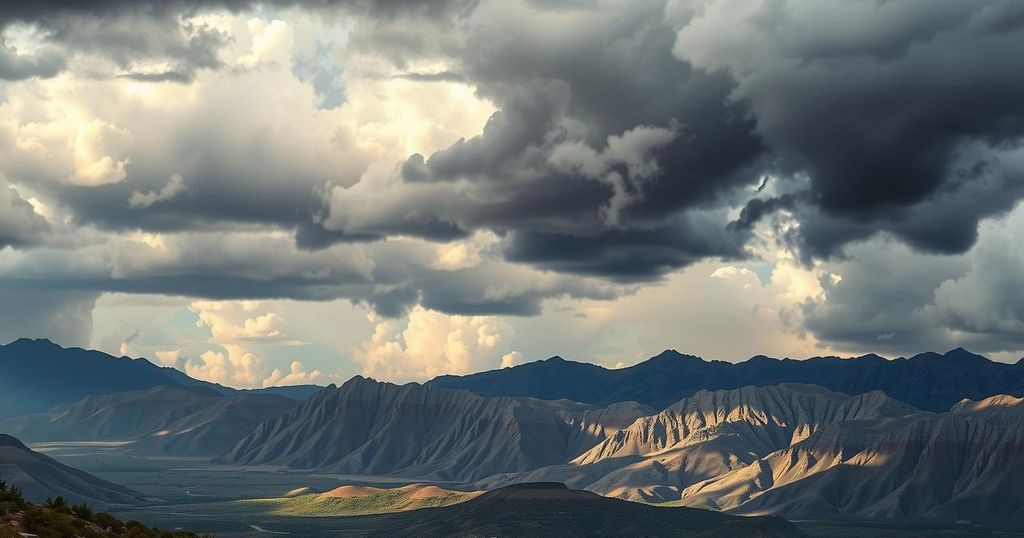Bolivia’s electoral court has barred Evo Morales and suspended leftist candidate Andrónico Rodríguez from the upcoming elections. They decried the decision as an attack on democracy, accusing President Arce’s government of political manipulation. The political landscape remains tense as candidates and voters brace for potential protests and turmoil in a fractured electoral environment.
Bolivia’s electoral authorities made headlines on Tuesday as they barred former President Evo Morales from seeking re-election and suspended a prominent leftist candidate, Andrónico Rodríguez. Morales, known for being the first Indigenous president, had previously led the nation from 2006 until he was ousted in 2019. Both Morales and Rodríguez criticized the decision as detrimental to Bolivia’s already fragile democracy, suggesting that it was a politically motivated attack by President Luis Arce’s government.
In a local radio interview, Morales lamented, “We have been persecuted,” asserting that the situation poses a significant threat to democracy. He called for unity among his supporters to confront the country’s pressing issues, including the economic crisis. Morales has threatened to incite protests should he be barred from running, which adds urgency to the upcoming elections that are split in voter sentiment.
Rodríguez, a younger politician at just 36, expressed similar outrage, labeling his candidate suspension as a politically charged move. He demanded protests, emphasizing on social media that the people’s will cannot be overshadowed by judicial rulings influenced by political motives. “No ruling or judicial decision driven by political interests can overrule the sovereign will of the people,” he posted on X.
The Supreme Electoral Court cited technicalities as the basis for its decision, which comes just as the candidate registration period is closing. Tensions are mounting between Morales and Arce, alongside a weakening of their political party, the Movement Toward Socialism (MAS), which has seen its unity strained under the pressures of a faltering economy and internal disputes.
President Arce has seen his popularity dwindle as inflation rises and fuel shortages cripple daily life. He recently exited the race, endorsing his chief minister, lawyer Eduardo del Castillo, to replace him as the MAS candidate. However, Del Castillo, who has faced criticism for his heavy-handed tactics against protestors, may be unable to rally the same support as Morales or Rodríguez.
On the opposition side, division among centrist and right-wing parties leaves them without a strong candidate to challenge the MAS, even as registered candidates like Samuel Doria Medina, a veteran of multiple failed presidential runs, and Jorge “Tuto” Quiroga, who has a history with military authoritarianism, loom over the elections.
Morales’ ban wasn’t entirely surprising. His newly formed political group, “Evo Pueblo,” lacks the party status necessary to run candidates. The court also cited a ruling that limits citizens to two presidential terms, complicating Morales’ potential comeback. Some observers view this legal maneuvering as a prime example of how political strife has tainted Bolivia’s judicial system.
Kathryn Ledebur, from the Andean Information Network, spoke to the difficulties posed by the judiciary’s relationship with politics, stating, “Arce benefitted from the rapid deterioration of the already weak justice system.” She expressed concerns about the potential for the forthcoming elections to devolve into chaos.
Amid the turmoil, the court also took an unusual step by suspending Rodríguez’s candidacy, pending a legality hearing for his electoral alliance, scheduled for Wednesday. This breadth of legal actions and criticisms even rose from within the electoral body itself, with Francisco Vargas warning the country about threats to the democratic process. “I alert the country and the international community that the democratic system is being put at risk by legal actions that seek to affect the normal development of the elections,” Vargas noted.
With the political landscape shifting rapidly, the coming elections promises to be a tense, heavily contested affair as candidates and voters alike navigate this complicated situation in Bolivia.
In conclusion, Bolivia’s political arena is on shaky ground with the recent disqualification of Evo Morales and the suspension of Andrónico Rodríguez. The electoral court’s decisions underscore ongoing struggles within the MAS party and broader issues of governmental power misuse. The upcoming elections now carry greater unpredictability as accusations of political manipulation sour the electoral process, revealing a divided and strained democracy. With protests looming and a fragmented opposition, the outcome remains uncertain as both sides prepare for what could be a transformative contest.
Original Source: ca.news.yahoo.com






